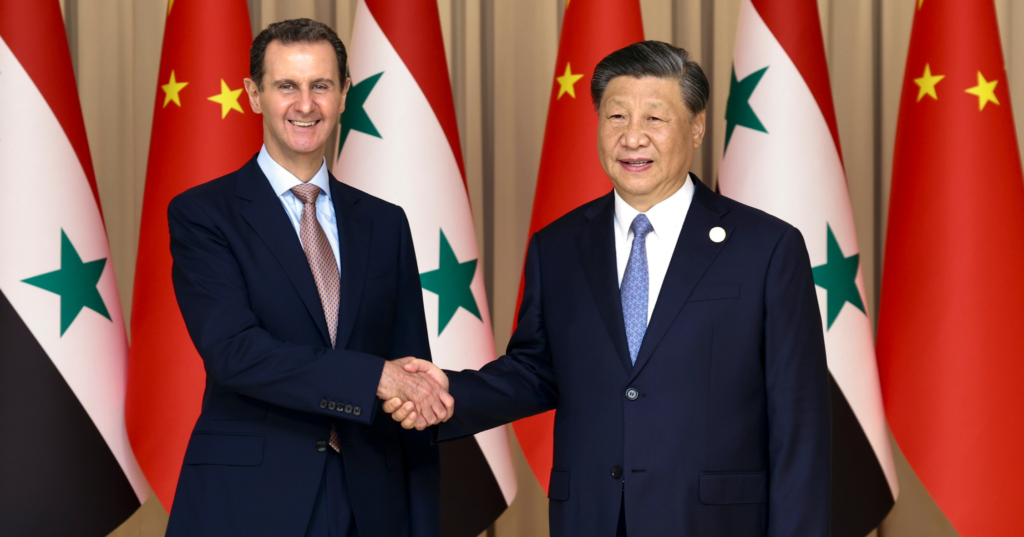The focus is on Chancellor Olaf Scholz, who arrived in China on Sunday and spent three days there. The fact that Scholz was accompanied by Environment Minister Steffi Lemke and Agriculture and Transport Minister Volker Wissing shows the importance of the visit for both sides. The course of Sino-German relations shows historically that practical cooperation is the cornerstone of bilateral relations. On the other hand, attempts that resulted in ideological conflict have strained and weakened their cooperation. Strong mutual strategic trust and open communication have contributed to the success of Sino-German relations, which are based on the principles of economic globalization and interdependence.
Grundlagen der Zusammenarbeit
Trade and economics are at the heart of Sino-German relations. Germany has been one of China’s most important economic partners in Europe over the past fifty years. Bilateral trade accounts for about a third of total trade between China and the European Union. The symbiotic nature of their economic relations is also demonstrated by the fact that German investments in China account for a third of all EU investments. The automotive and energy industries of both countries are prime examples of productive industrial cooperation, as demonstrated by CATL’s major investments in Germany.
German companies are still optimistic about China and its economic potential despite rising geopolitical tensions, as evidenced by the 4.3% annual growth in direct investment in 2023, which reached a record 11.9 billion euros ($12.9 billion), according to the IW Institute. In addition, 10.3 percent of total German foreign investment went to China in 2023, the highest percentage since 2014.
Wirtschaftliche Zusammenarbeit
In addition, according to the German Chamber of Commerce’s “Business Confidence Survey 2023-24” published in January, over 90% of German companies doing business in China plan to continue doing so in the future, with more than half saying they will increase their investments. China has been Germany’s most important trading partner for eight years, and for good reason. China and Germany still have a lot of room for economic growth, especially in the digital and green economy, electric cars, clean energy, biopharmaceuticals, and artificial intelligence.
The success of Sino-German relations can be attributed to the win-win cooperation and pragmatic cooperation of both countries, which promote globalization, support multilateralism and are committed to creating a community of common interests through their cooperation.
However, the EU has struggled with a long list of crises, from financial collapses to geopolitical turmoil, which have fed into conservatism and extreme ideologies and significantly altered the organization’s foreign policy. In particular, the war between Russia and Ukraine has significantly limited, if not completely wiped out, the benefits of peace and economic expansion that Europe, especially Germany, had reaped for nearly 70 years.
Innovation und Kompetenz
This has significantly changed the development landscape. The EU and Germany’s economies have grown reasonably strongly despite the difficulties, relying on China’s low-cost raw materials, Russia’s cheap energy supplies and US security guarantees. However, US and European sanctions against Moscow have disrupted Germany’s energy supplies, significantly increasing its energy costs and undermining its ability to compete internationally.
This has dramatically changed Germany’s international development environment. In addition, Germany has invested heavily in security to reduce the “threat” from Russia, as it fears that it may rely too heavily on the United States for protection. Under these conditions, the only safe option for Germany is cooperation with China.
Globale Herausforderungen meistern
However, this cooperation is also vulnerable to change given the complex local and international circumstances. In addition, Germany’s inconsistent stance toward China will undoubtedly cloud future economic cooperation. Following the publication of the EU study “EU-China A Strategic Outlook” in 2019, which characterized China as a “partner,” “competitor,” and “systemic rival,” a shift in the EU’s stance toward China is evident, with a greater emphasis now being placed on ideological and broader security considerations. Germany has been heavily influenced by the EU and U.S. “de-risking” policies toward China in the wake of the Russia-Ukraine conflict. This led to the adoption of a new security and China policy in 2023. The Scholz government adopted its first comprehensive China policy on July 13, 2011, emphasizing the need to reduce economic dependence on China while promoting “systemic rivalry” with Beijing. It also emphasizes the importance for China and Germany to continue to cooperate on international issues such as free trade and climate change.
Abschluss
Abschließend stellte Scholz klar, dass sich Deutschland trotz der neuen Strategie nicht von China „abkoppeln“ werde. Vielmehr sei Deutschland bestrebt, die Zusammenarbeit mit China fortzusetzen. Es ist die erste Reise von Bundeskanzler Scholz nach China seit der Einführung der neuen Politik im vergangenen Jahr. Einigen internationalen Medien zufolge scheint Deutschland seine Prioritäten auf südostasiatische Länder auszurichten, um seine Abhängigkeit von China zu verringern. Doch diese Strategie ist undurchführbar und widerspricht den Interessen Deutschlands.


